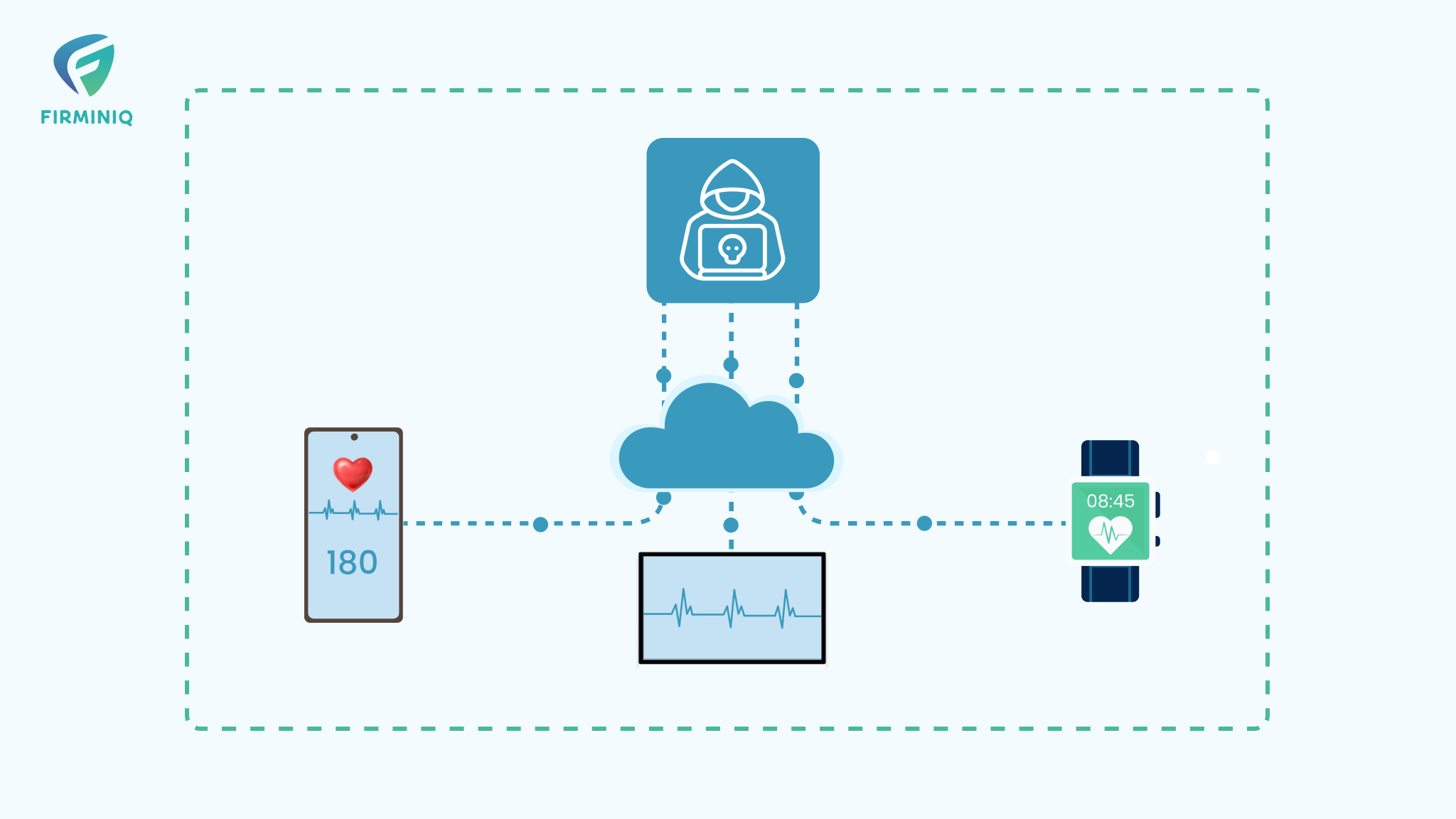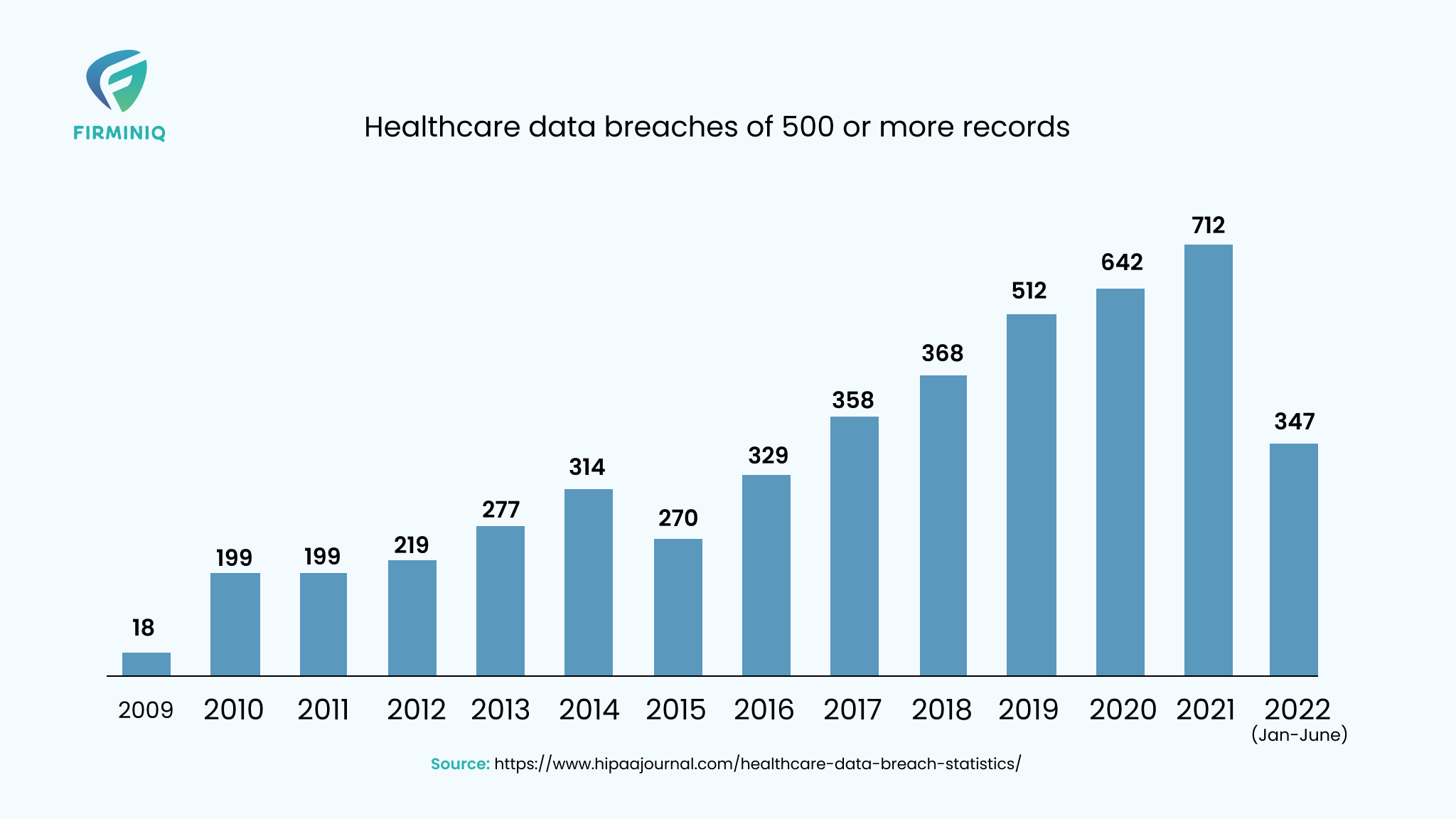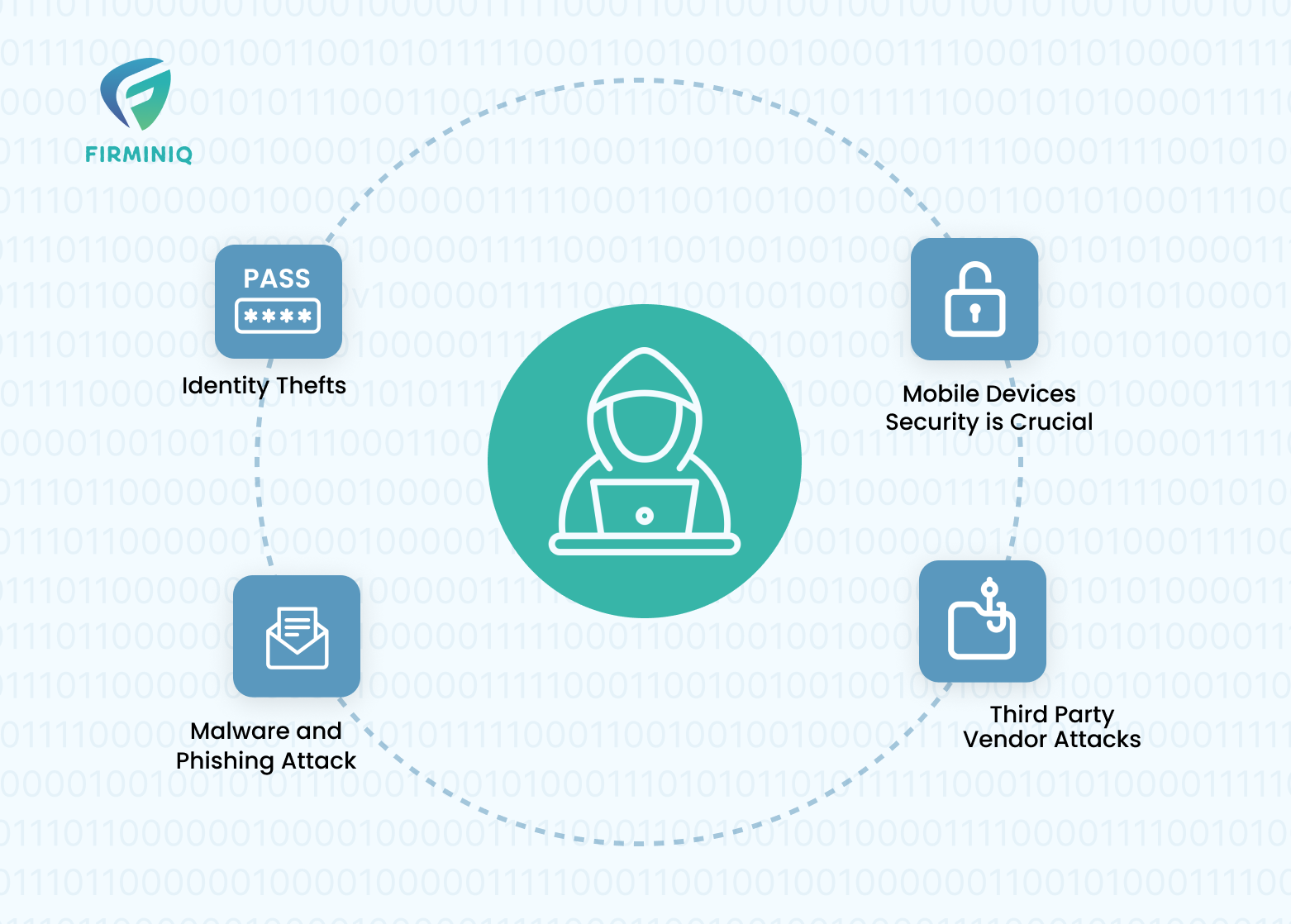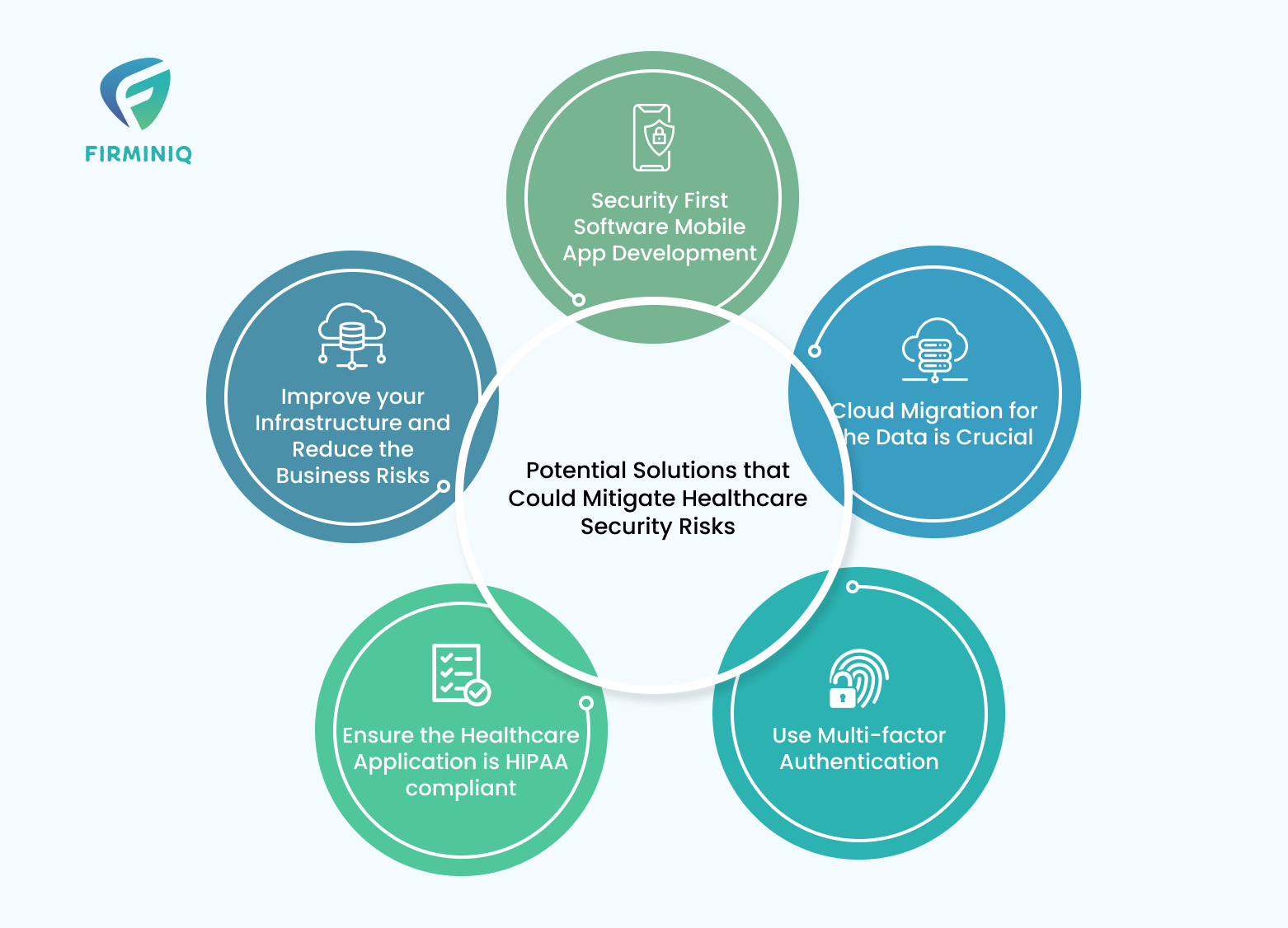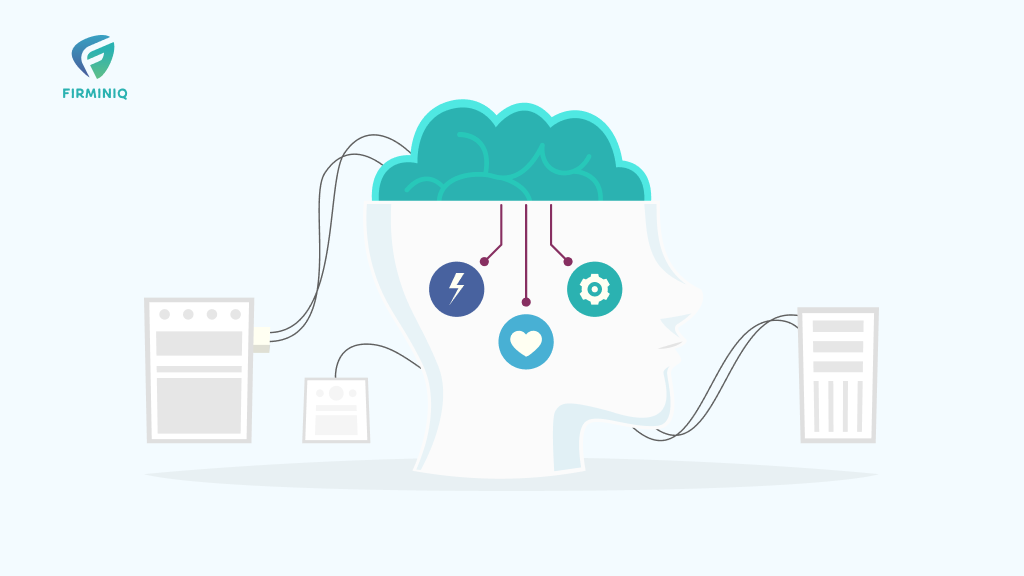Interconnected devices have become predominant in hospitals and healthcare institutes. As the use evolves, the industry becomes vulnerable to more cyberattacks, crypto-jacking, or data breaches.
Every year hospitals are on the news as a victim of data breaches. The second-largest non-profit hospital chain in the U.S CommonSpirit Health says ‘IT security issue’ is disrupting services.
Well, these breaches and concerns are a major threat to the organization and do not only disrupt the personal privacy of the patient but also an ultimatum to the hospital’s reputation. It puts the patient’s life and the hospital reputation at risk!
Attackers are always chasing opportunities to break in and get the sensitive and crucial information that healthcare has access to. The trend puts an enormous amount of pressure on these organizations and the team must be able to build a layer of defence to combat these vulnerabilities.
If you wish to enhance security, healthcare institutions must ensure robust security measures and offer optimal delivery and care. Find out how we help healthcare mitigate the risks and strengthen the organization’s reputation.
Common Risks in Healthcare Security
1. Identity Thefts
Medical identity fraud is a large cause of patient misidentification. The attackers have been using others’ health insurance or social security number to avail themselves of services, goods, or monetary benefits. The identity of the pretender and the real patient is merged, which could create serious havoc and can even be life-threatening for the patients.
2. Malware and Phishing Attack
As per a report from Fortified Health Security, healthcare had endured around 337 breaches in the first half of 2022. Malware and phishing attacks involve a set of techniques that involve emailing the employees and taking out the credentials and other crucial information that could allow hackers to manipulate data and access their company and patient records. Also, emails from some genuine-looking platforms requesting login are a phishing attack, once the user clicks on the link, the hacker gets access to their system.
3. Mobile Devices Security is Crucial
Remote Patient Monitoring has become a trend, especially after the pandemic and the devices seamlessly help patients to monitor their health conditions without having to reach out to hospitals physically. As per research from the Nozomi Networks IoT security, hackers are easily targeting devices including infusion pumps, wireless monitors, and implantable devices.
The patient data is collected and is wirelessly transmitted to their physicians. As the devices are carried to the homes, it may open holes in the defence system! The data is carried too and forth, and device security is not guaranteed.
4. Third Party Vendor Attacks
Research from 2020 Protenus Breach Barometer clearly states that the attack from the business associates led to a breach and risked the lives of over 24 million patients’ health with their records in the year 2019.
Healthcare has been relying on third-party vendors for operational and other support services as they have the necessary command to access the information and commit fraud, making it difficult for healthcare to anticipate these breaches!
Potential Solutions that Could Mitigate Healthcare Security Risks
When we talk about data security, the healthcare industry is on the radar. A single breach could lead to monetary and reputation damage while bringing your entire business to an end. So, how can you efficiently prevent these cybersecurity risks? Consider following these potential solutions that would help lower the risks.
1. Security First Software Mobile App Development
With the continuous influence of growth and advancements in technology, it has been recommended that businesses must focus on developing compliant and security-regulated applications. The healthcare segment cannot entertain any kind of risks and the information must be kept confidential as it can cost the patient’s life. Therefore, applications must be developed using secure development best practices and ensuring HIPPA compliance and other regulations from different regions and departments.
2. Cloud Migration for the Data is Crucial
Well, not only for the healthcare segment, but every business now has begun to shift their paradigm towards the cloud as it offers secure, reliable, and flexible solutions. Cloud migration brings plenty of opportunities and boosts consistency and patient outcomes in healthcare. With the data being stored remotely, even during the outages, cloud deployment helps to back up the data and stay secure.
FIRMINIQ offers infrastructure management services so that patient data and other crucial information remain protected. Moreover, it allows organizations to leverage the level of security they need. It saves the cost of organizations as they do not have to invest in critical infrastructure to store data. HIPAA (Health Insurance Portability and Accountability) compliant cloud storage offers significant cost savings with more flexibility.
3. Use Multi-factor Authentication
To build a highly secure healthcare mobile application, it is vital to check for all the government and other regulations that ensure data protection at a higher level and personal account authentication. To protect the patient data, multi-factor authentication must be integrated that seamlessly proves the user or the patient identity and allows access. It can usually be in the form of passwords, fingerprints, face scanning and more.
4. Ensure the Healthcare Application is HIPAA compliant
To protect the patient’s privacy, avoid unwanted regulatory fines, potential lawsuits, and loss of credibility, it is vital to ensure that the healthcare applications are compliant with the Health Insurance Portability and Accountability Act (HIPAA). The healthcare organizations must ensure to hire a software development company with prior experience on it and must always stay coordinated with the regulations and requirements of the healthcare industry. Well, we can help you maintain the law integrity while developing a favored application with our experienced and top-notch developers.
5. Improve your Infrastructure and Reduce the Business Risks
To mitigate the business risks, it is important to improve the infrastructure you are using. It affects downtime and the data loss may also be controlled. Choosing efficiently managed network security services with FIRMINIQ is vital to secure your data as it allows only authorized access to necessary people.
Understanding the network map and using it in a way that can offer an overview of the vulnerabilities your organization may face. It will help you see what information is vulnerable to and allow you to take prior actions. You know when the new authorized devices are coordinated with your system and help you provide access or restrictions for the devices on the network, as per the need.
Summing it up
It is noticeably clear that the health sector is susceptible to vulnerabilities and cyberattacks as increasingly hospitals and clinics are depending on technology and mobile applications to treat patients and offer them personalized services. Well, this kind of environment creates a room of vulnerabilities and damages the entire ecosystem. Therefore, businesses must timely recover from these threats and constantly evaluate the plans while they evolve.
With the growing demand for an efficient, feature-rich, and secure mobile application, it is high time businesses ensure managed network security while making it a principal goal to ensure safe solutions for the future.
From constant evaluation to upgrades, your security infrastructure must meet the standard protocols. And it would begin when you reach security experts to access your infrastructure and mitigate the risks while providing the necessary improvements.
For more details on the security of your infrastructure and eliminating vulnerabilities, you can reach out to us!
FAQ’S
1. What is identity theft?
When hackers try to steal personal and sensitive user information to commit fraudulent claims, health insurance, or via your credit/debit cards. They can forge your name, social security number, bank account or cards.
- Cloud that ensures data-backup and encryption of sensitive information
- Time-to-time security and software updates
- Train employees with regular seminars for cybersecurity and attacks.
- Install firewalls
- Frequent password change
- Assess your vendor
3. Do you need to comply with HIPAA when using a mobile device?
Yes, healthcare institutes that deals with sharing information electronically must imply the necessary HIPAA compliant and other regulations that ensures privacy and security of the data. These are some of the vital requirements and must be followed!


